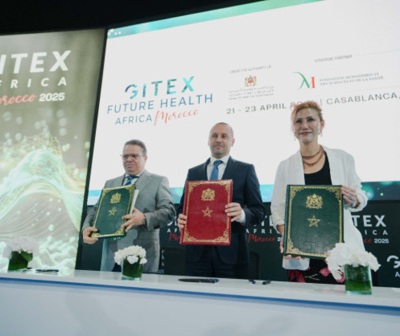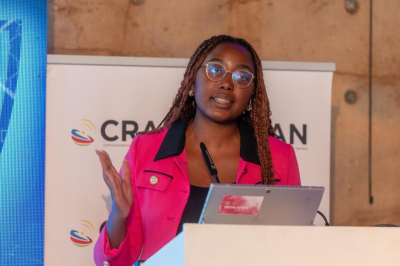- Congo signs MoU with Russia's Higher School of Economics to boost digital skills training
- Agreement announced at Gitex Africa, focuses on training youth to support nationwide digitization
The Congolese government has secured an agreement for Russian expertise to enhance the digital skills of its population. A memorandum of understanding was signed on Tuesday with Moscow's Higher School of Economics (EHESE) on the sidelines of the third Gitex Africa exhibition, which concludes on Wednesday.
"To train in the digital field, you need access to digital expertise. The purpose of this memorandum is to facilitate the exchange and advancement of expertise to train young Congolese, because the goal is to digitize all spheres of our administration. And when we talk about digitization, if you don’t have the necessary skills, it’s very difficult," Léon Juste Ibombo, Congo's Minister of Posts, Telecommunications and the Digital Economy, told RT television.
The Congolese government has identified digital skills as a cornerstone of its digital transformation strategy, alongside innovation and entrepreneurship. This priority has already led to initiatives such as the establishment of the African Center for Research in Artificial Intelligence (CARIA), with support from the United Nations Economic Commission for Africa (UNECA). In March, Congo also began discussions to join the Give1Project program, an initiative backed by the United Nations Development Programme (UNDP), Microsoft, and France, which aims to train 25,000 young Africans in digital skills. Furthermore, a partnership has been forged with Mohammed VI Polytechnic University, among others.
By prioritizing digital skills training, the Congolese government aims to empower its citizens to actively participate in the burgeoning digital economy and cultivate a skilled workforce capable of addressing both national and regional demands. The World Bank, for instance, projects that nearly 230 million jobs in sub-Saharan Africa will require digital skills by 2030. The Bretton Woods institution estimates Congo's youth unemployment rate at approximately 42%, in a nation where nearly half of the population is under the age of 18.
However, it is important to note that the agreement signed in Marrakech is currently a memorandum of understanding, and the specific terms and a timeline for a formal agreement have not been disclosed. Several key details remain unclear, including the number of beneficiaries, the targeted age groups, the selection criteria for participants, and the precise digital skills that will be taught. Further developments will be necessary to fully evaluate the potential impact and concrete prospects of this nascent partnership.
Isaac K. Kassouwi



















